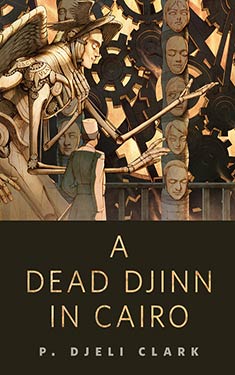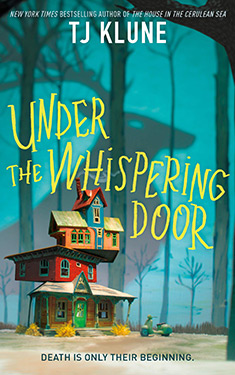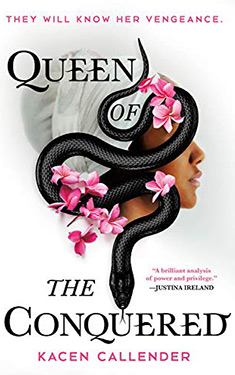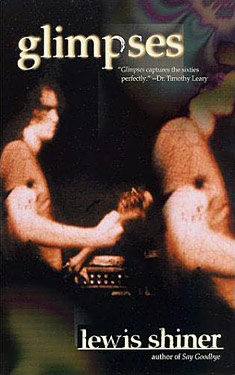P. Djeli Clark
Completed 4/30/2022, Reviewed 4/30/2022
4 stars
A neat little novelette, just under fifty pages. It’s a mystery set in a post-colonial steampunk 1912 Cairo where the native population was able to expel the British because of the discovery of magic. I read this little gem in anticipation of the author’s novella and novel, the former being nominated for several novella awards and the latter being nominated for both the Nebula and Hugo this year (so far). This novelette sets up a world of djinn, ghouls, and angels in a very interesting way and features a female detective. I enjoyed it, though it felt a little crammed being so short.
Fatma is the detective. She likes to wear men’s suits in the British style rather than the local Arab garb. She comes to the scene of a djinn dead from exsanguination. In fact the body is completely bloodless. First thought to be a suicide, Fatma thinks there’s something more to this death. Soon, the remains of an angel are found, confirming Fatma’s hunch. This leads her to a plot to end the world and bring back ancient gods.
The best part of this book is the world building. I’m not much of a steampunk fan, but this was interesting. The angels are clothed in metal and there are automaton animals running around. Clocks and gears are also featured. The author goes into detail describing what a djinn looks like, from yellow eyes to scaly skin. And Fatma continually reasserts that the angels are not really angels, but other magical beings.
The characterization is decent for such a short book. The focus is on Fatma, of course. She’s a smart, sly detective, seeing more than what’s there than her male counterpart. I liked her and hope she is the main character in the next books.
Not much more to say about this book without giving away too much, it being novelette length. I give it four stars out of five. The prose is really terrific and kept me reading until my eyes simply shut from exhaustion. I’m looking forward to the rest of the series for the prose and to see what other mysteries the author can come up with.



